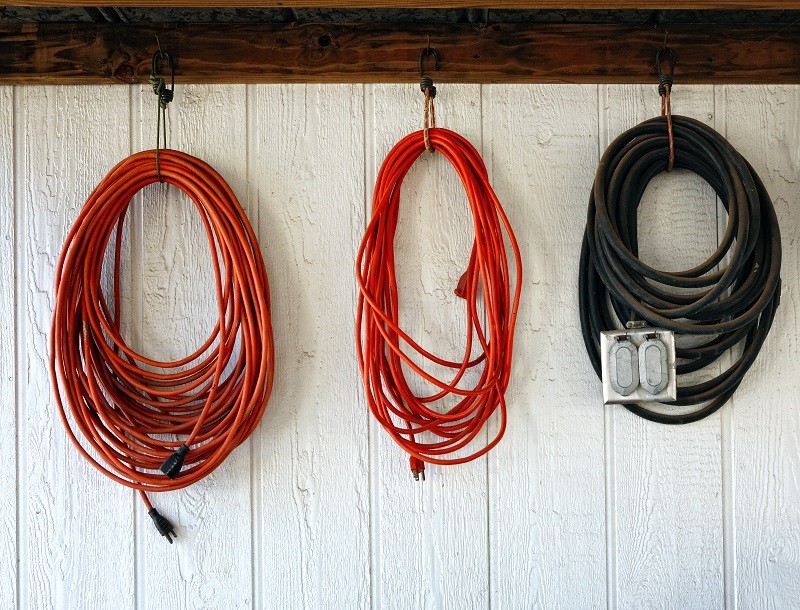When you need power, but the nearest outlet is just out of reach, what do you do? If you are like most people, you will reach for an extension cord. However, what you may not realize is that there is a huge difference in plugging in a cell phone charger near your bed and powering your treadmill in front of the television. While you may need a few extra feet to get the power right where you want it, it is imperative that you figure out how to choose the right extension cord for the job. This will ensure your safety and the safety of your device.
Longer Isn’t Always Better
One of the best things about extension cords is that you can get power wherever you need it. However, that doesn’t mean that a longer cord is better. The longer of an extension cord you are using, the lower the delivered voltage will be. This means that you will use electrical efficiency with every additional foot. It may also mean that the appliance you are trying to plug in will receive the voltage needed to run safely or properly.
Part of selecting the right extension cord for the job is to choose one that is as short as possible. This will not only help you conserve energy, but you may also be able to safely use lighter-duty cords. Once you have figured out how long of a cord you need, you need to match the heft of the extension cord to the power your appliance requires.
Amperage Ratings and Extension Cords
Any appliance or device you are trying to plug in will have an amperage rating. This is usually found on a plate or tag on the device. Your extension cords are also categorized, but by gauge. Lower gauges on your cord correspond to appliances that are more heavy-duty. The majority of extension cords in a home will range from eight gauge up to 18 gauge. You can make sure you find the right cord for your appliance by using a cord amperage charge, which is available online.
Always Read the Fine Print
There are additional factors to consider in addition to the gauge and length of the extension cord you choose. One of the most important is whether or not the cord has been rated to be used outside. If a cord isn’t rated for exterior use, and you place it outdoors, it is at risk of overheating and may even cause a fire.
You will see a cord that is rated for outdoor use because it will have the notation on the packaging. In most cases, the cord will be labeled with a “W,” which means it is safe to use it outdoors.
When it comes to using extension cords, you can’t be too careful. Make sure to use the information here to find a cord that suits your needs and that will be safe to use.


